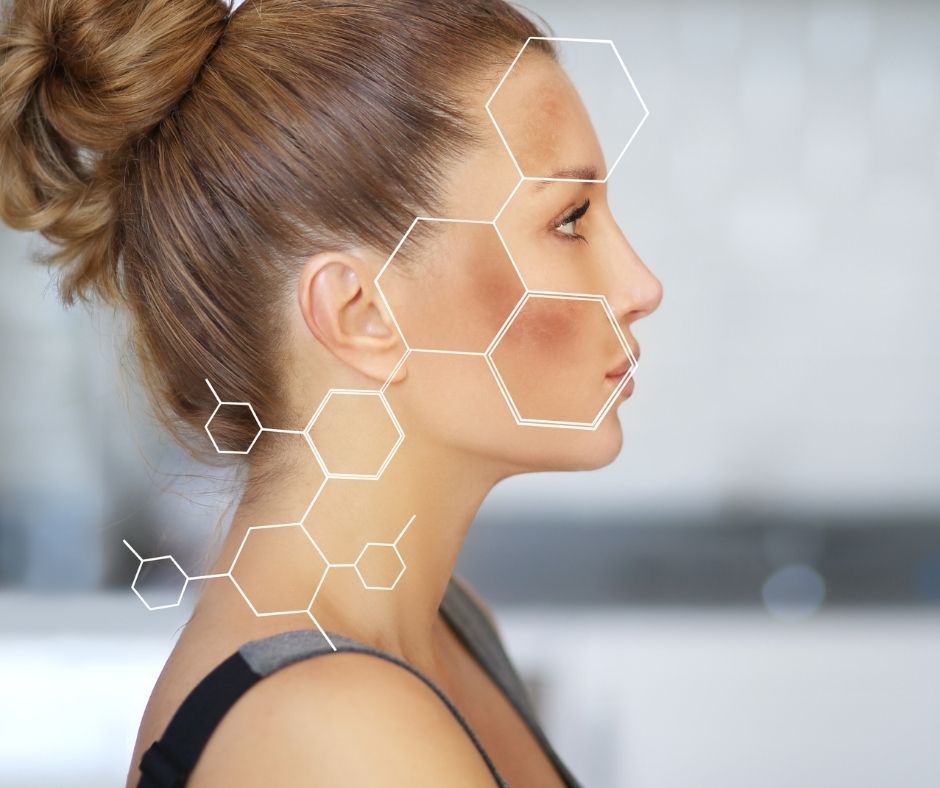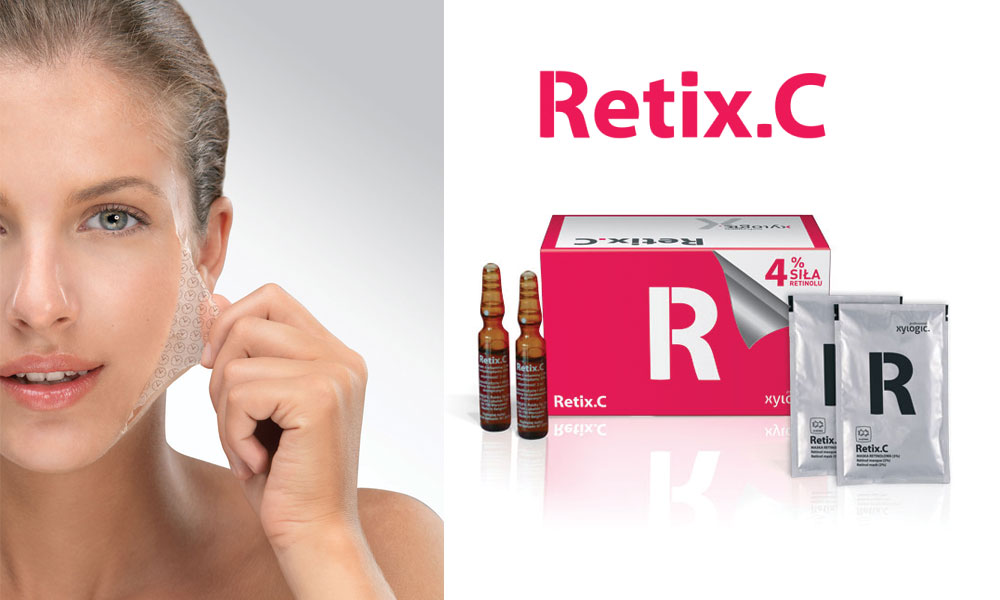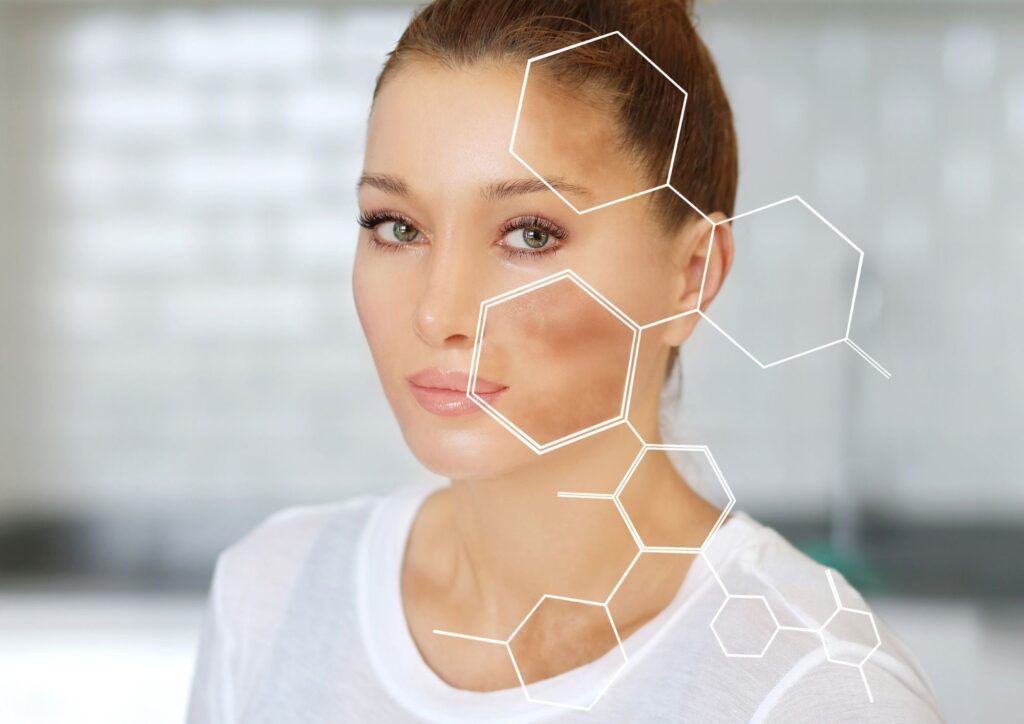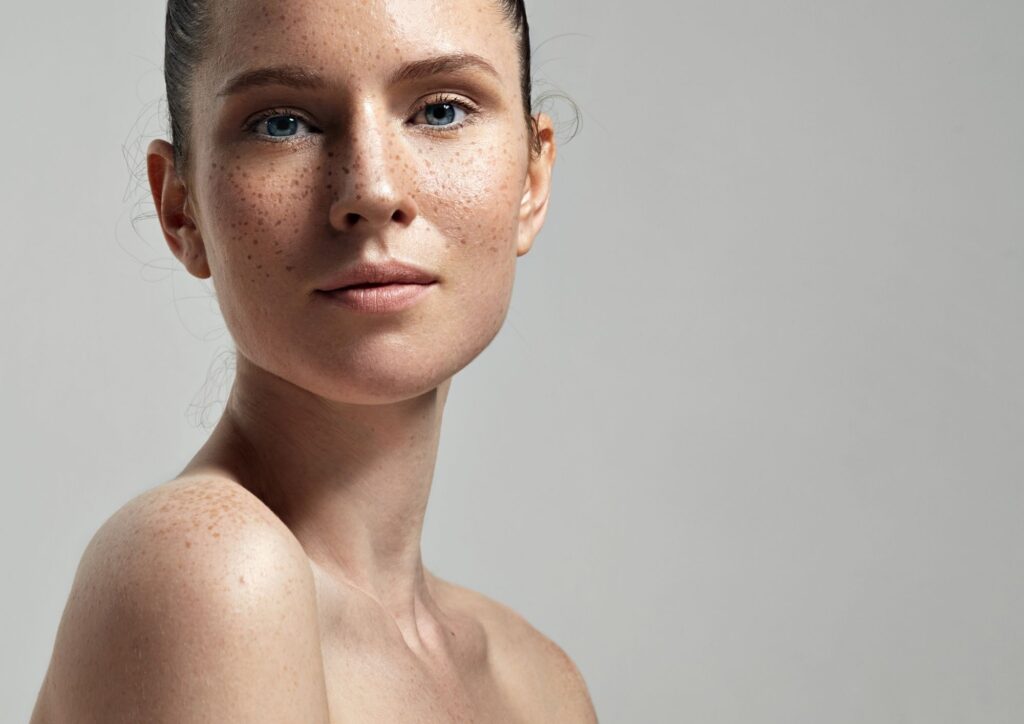Getting rid of discolouration is one of the harder tasks standing before the field of aesthetic medicine and cosmetology. It often requires not only the application of appropriate in-salon procedures (often a series of those) but also changes in the skin care routine of the client. It is also important to get rid of factors that contributed to the formation of such skin changes.
Clinic procedures:
Cosmelan & Dermamelan
One of the most effective procedures against discolouration are Cosmelan and Dermamelan, which work for 99% of patients and reduce the appearance of stains by 95%. These are spectacular results which are, so far, unmatched by any other procedure. They are perfect for getting rid of discolouration caused by inflammation, hormonal changes, and those caused by UV radiation.
Despite the great results, it is not a procedure fit for everyone. Some clients whose discolouration is located in the shallow parts of the skin do not require such intensive treatment. The acute skin flaking following the procedure is a factor which may discourage clients and instead cause them to choose gentler and slower methods of fighting discolouration.
Retix C
Is a highly effective procedure with many benefits. Besides reducing discolouration, it is also used to combat wrinkles. After performing the procedure, the skin is tight, bright, and illuminated. These are achieved thanks to its components which are 4% retinol, vitamin C, and antioxidants. In order to attain such results, the procedure is done over 3-5 treatments with 3-4 weeks in between.
Acid exfoliation
Chemical peels using kojic, azelaic, glycolic, TCA, pyruvic, phytic, and lactic acids can also help achieve desired results. Similarly to Retix C, a series of treatments are ideal.
Needle mesotherapy
There are many complex products dedicated to brightening discolouration through needle mesotherapy on the market. Depending on the mix of ingredients, they are more or less effective. It is important to know that only a small proportion are registered medical materials and only such products can be injected according to the law. We only use well tested and fully safe products in our clinic.
Microneedle mesotherapy
This procedure performed using microneedles fitted to a machine that causes exfoliation and thus elimination of skin discolouration. A brightening agent is used to reach deeper parts of the skin during this treatment.
Beware! Not all procedures advertised as brightening discolouration actually reduce them. One of those controversial therapies uses a Fraxel laser treatment. Ablative fractional laser to remove skin imperfections is a common practice in some clinics. After the outer layer of skin is removed it is visibly bright and discolouration minimised. However, many people who have tried this method report that the discolouration not only returns but appears darker and is more resistant to brightening with other procedures. Many medical professionals and doctors are of the opinion that it is not an appropriate laser to fight blemishes, especially those with hormonal, injury, or drug related causes.
Active ingredients helping combat blotchiness and discolouration
Everyday skin care is essential in the continuous fight with discolouration. Providing your skin with the right ingredients can improve its appearance significantly. You can find the most effective substances below:
- Retinol and other retinoids
- Azelaic acid
- Azeloglycine
- Arbutin
- Niacinamide
- Tranexamic acid
- Vitamin C
- Ferulic acid
- Exfoliating acids: lactobionic, almond, salicylic, kojic
- Liquorice
Not all of the above-mentioned ingredients can be combined with each other and with salon treatments. Not all of them are successful fighting all types of discolouration. Some of them are most effective with melasma, others are perfect for treating acne scars. They also have many other benefits on the skin! We will help you choose the appropriate dermo cosmetics for targeting your skin concerns.
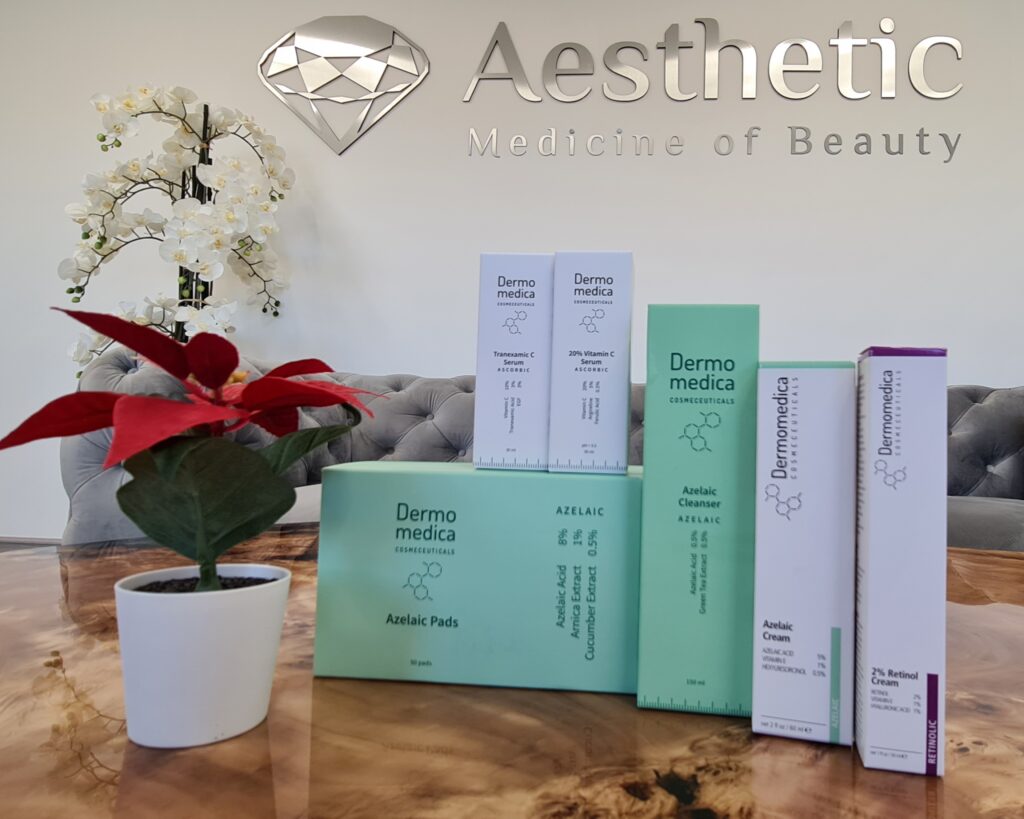
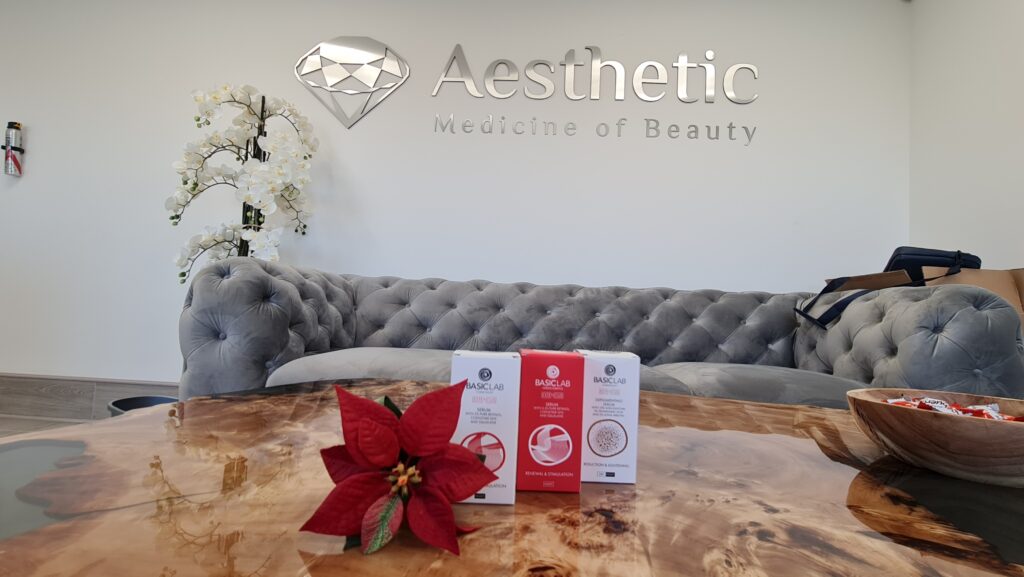
There are other products that are available in our clinic and contain ingredients beneficial in this predicament, for example a variety of serums with vitamin C or niacinamide. However, they are aimed at other issues and are therefore not included in this article. Ask our stuff about detalis.
Discolouration prevention
The importance of prevention cannot be overstated when talking about fighting discolouration. The most basic but, unfortunately, often omitted step is using filters for different kinds of radiation – not only UVB but also UVA1 and UVA2. The best sunscreens also protect from blue and red lights (HEV and IR). Apply them every day, regardless of the weather or your plans for the day. UVA rays penetrate through clouds and glass, so they affect your skin even when it’s overcast. Research shows that some people suffering from melasma are also more sensitive to the visible light.
People whose discolouration worsens with sun exposure should remember to cover their heads and faces, especially on the sunniest of days when the UVB radiation affects us most.
Another essential element of everyday care is protection from free radicals. Include dermo cosmetics rich in antioxidants (such as vitamin C, vitamin E, ferulic acid, coenzyme Q10, phloretin, or bakuchiol) into your skincare routine to protect it from damage.
One of the most important stages in combating discolouration is understanding their underlying cause. Hormonal changes, use of phototoxic products without protection, mechanical damage, or acne scarring are some of the most common reasons for these bothersome skin changes. Awareness of those matters allows for modification of harmful behaviour or undertaking the correct treatment which eliminates the cause of discolouration.
- If your skin changes are related to hormonal imbalance, you should visit a gynaecologist or endocrinologist and get appropriate blood tests
- If you believe your discolouration could stem from medication, talk to the doctor who prescribed them and see if they can offer alternatives with lesser dermatological side effects or seek advice on how to combat them
- If you suffer from persistent acne and struggle with post-inflammatory discolouration, consult a dermatologist who will help you manage firstly the root cause and then the effects of your condition
- If despite adhering to the correct skincare routine, protecting your skin from sun damage, and undergoing professional treatments your problem persists, consult a dermatologist. They might help you with the wide array of prescription medication which are much stronger than dermo cosmetics
